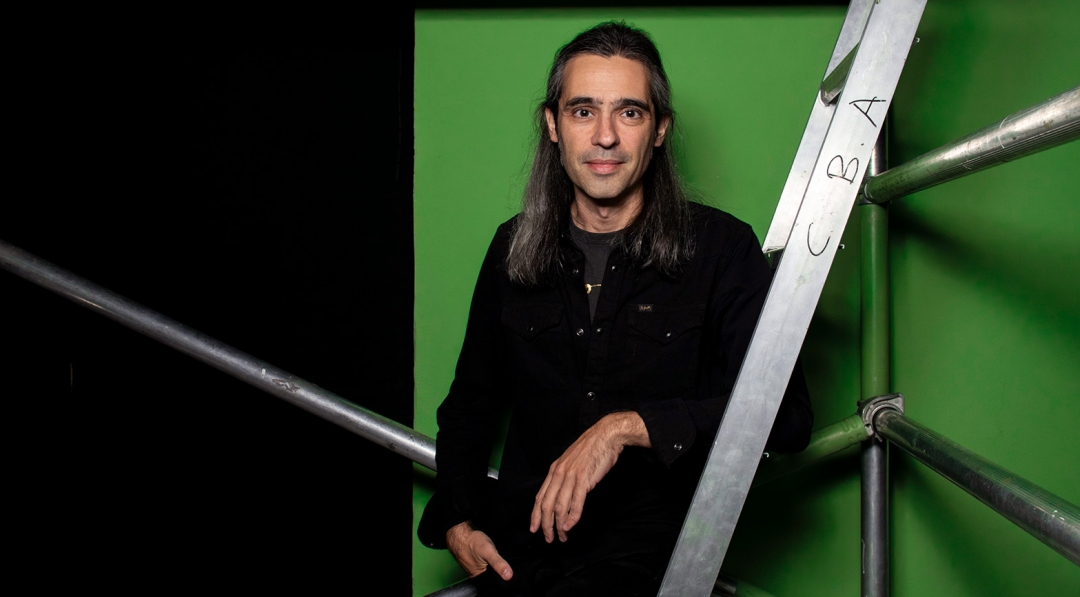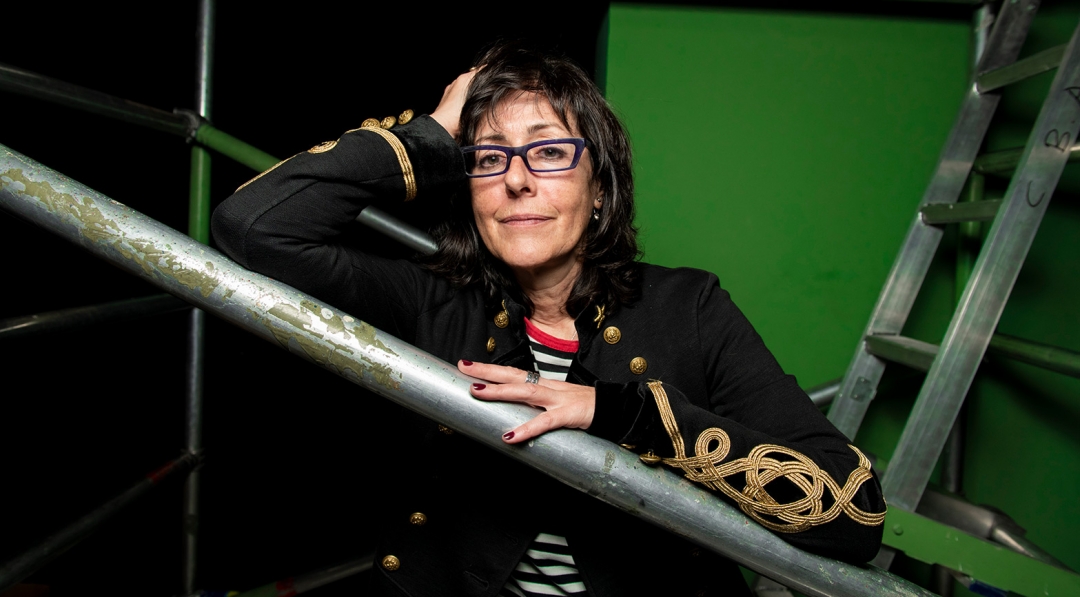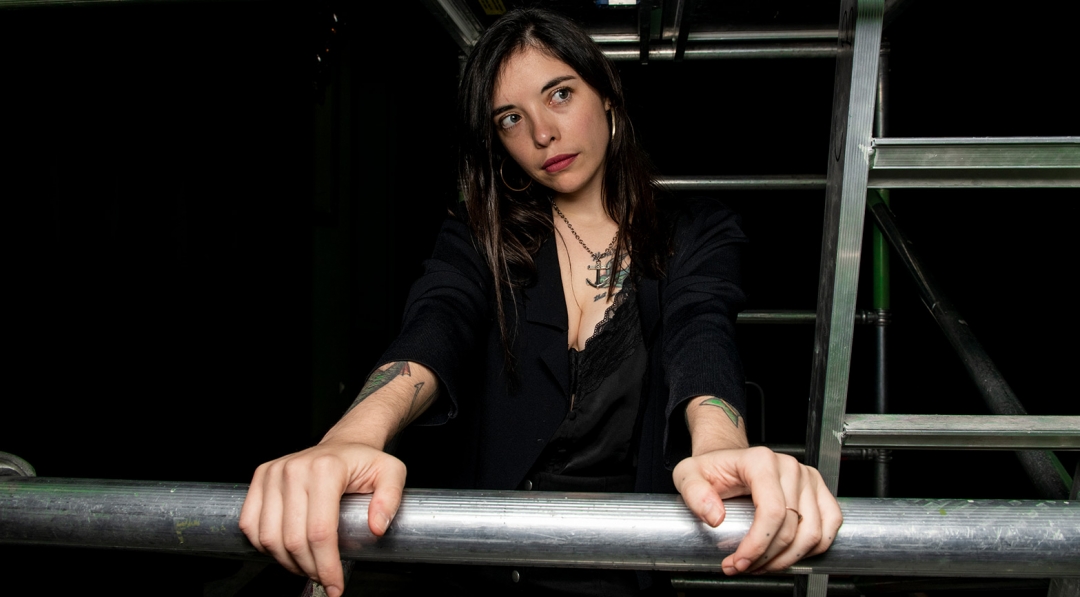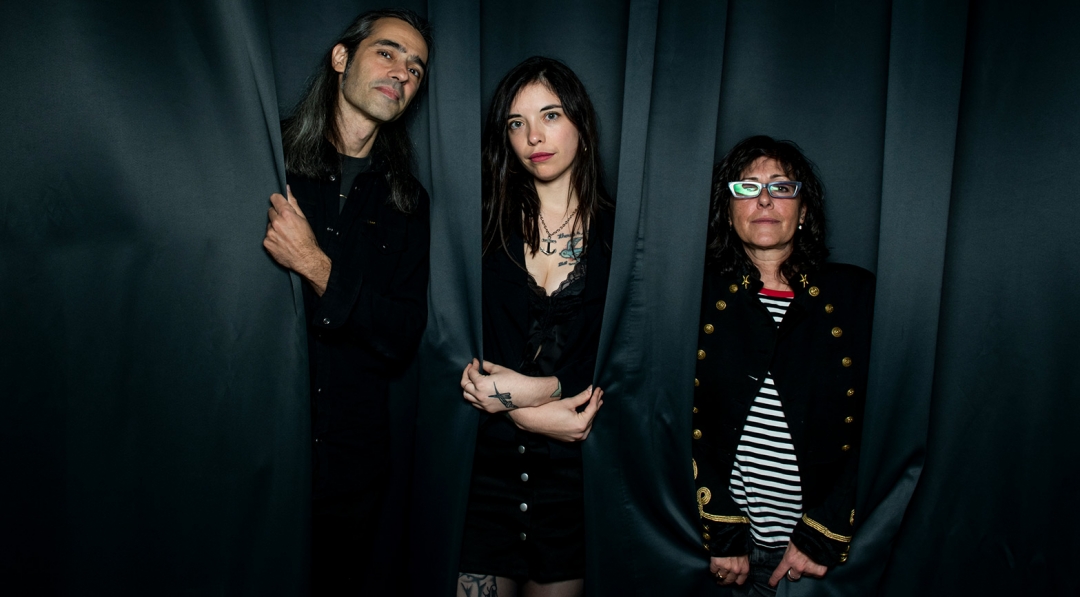EÑE Festival
Poetry in Motion

Festival EÑE, the main national literary event, is back in person after two years. Big Spanish-speaking names and emerging creators gather around a universal poetic theme: love. We talk about love, the role of poetry in modern society, and its new manifestations with three essential authors: Álvaro Tato, AJO, and Luna Miguel.
Sometimes it’s a reminder of what happens in life, other times inspiration or an escape route for what overcomes the individual. Poetry flows in both directions; it influences modern society in the same way that it draws from it. Identifying yourself with verse allows you to recognise scenarios and move through them. Poems that are now written digitally or sang reinventing the sound of thought like a new language. “I think that social media has helped promote poetry, both good and bad. But, before social media, bad poetry was also published, so we’re even”, declares the poet, journalist, and writer Luna Miguel (Alcalá de Henares, 1990).
Poet, playwright, and actor Álvaro Tato (Madrid, 1978) thinks along the same lines. “Poetry is young. Indeed, there are new trends, some bring out more suspicion in me, such as the Twitterati. The good thing is that it brings the younger masses closer to that phenomenon, but it unsettles me that they might be bad. I’d love to read a good book by poets of this style.” As the playwright says, this format is bringing poetry closer to the masses, especially youngsters. But it’s not the only one. “In my opinion, poetry has never abandoned youth, it’s simply changed over time. Sometimes it’s been written and, mostly, sung. I feel respect, admiration, and affection for the hip hop and rap generation, all that verbiage, sometimes bad, sometimes rude, and other times discovering new metric and rhythmic resources in Spanish,” considers Tato.

Álvaro Tato was a finalist of the Max Awards for Best 2021 Adaptation/Version for ‘Andanzas y entremeses de Juan Rana’ © Alfredo Arias
“Poetry has never abandoned youth; it’s simply changed over time. Sometimes it’s been written and, mostly, sung”
Pushing the boundaries is a sure-fire way of connecting with the audience. María José Martín (Saldaña, 1963), better known as AJO, knows this from personal experience. Her punk artistic spirit comes through in the shape of “micropoems” capable of stirring consciences in less than five verses. “Not everything that is brief is micropoetry, or everything that rhymes, a poem. We’re living in an era of information overload, so it’s not surprising that brevity is gaining ground.” Also, the author defends the ability of a poem to immerse itself or transform into other disciplines: “I love it with music in all its dimensions, forms, and styles. But poetry can mix with absolutely all artistic expressions. There are buildings, for example, that are pure poetry.”
Also, the poetic word is entertaining. Its magnetism is such that it can change the mood, causing you to roar with laughter or your eyes to fill with tears, or offer a second reading of a given phenomenon. “We’re currently experiencing a deep spiritual, financial, and social crisis and, therefore, it’s not only important, but crucial that poetry comes to save us,” shares poet and playwright Álvaro Tato. The poet from Madrid alludes to the role of new generations for this to happen: “New rockers, singer-songwriters, and rappers are creating fascinating new poetry that will give way to new poets (apart from bookish poets) in the way they present their work. There’s a new generation eager to make music with words.”

AJO, a “micropoet” —a term she coined herself— performs shows with musicians such as Nacho Mastretta, Corcobado, Tsukiko Amakawa, Paco Soto lvars or Julieta Venegas © Alfredo Arias
“We’re currently experiencing a deep spiritual, financial, and social crisis and, therefore, it’s not only important, but crucial that poetry comes to save us”
Which themes come up in contemporary poetry?
The fascinating thing is that all these new formats drink from the same fountain as epic Greek poetry. “Circumstances may change as much as they like, but there are atavistic themes that we try to understand generation after generation that remain unchanged,” suggests AJO. This comes from our constant inability to solve certain questions inherent to existence. “We’re a species with such specific concerns and emotions, that hang on to our awareness of mortality, that if you read universal poetry, rarely will you find other themes. From poems created in the 8th century BC to one published the day before yesterday, they speak about love like it’s a topic that stops being a theme, because when we talk about it, we talk about humanity,” expresses Tato.
Love’s capacity for attraction and its influence is so large that Luna Miguel confesses that she centres her entire production on this matter: “It occupies every nook and cranny. I only write out of love, think out of desire, and read with tenderness.” Nevertheless, the diversity of perspectives from which this theme can be covered turns love and its opposite into an endless source of inspiration. I believe that the big themes are always the same: love and death, for example. How we approach them is another thing. In this sense we do adapt as history advances. You can see it with love. José Ángel Valente’s intellectual love is different from Anne Carson’s unromanticised love, or Federico García Lorca’s passionate love, or Berta García Faet’s bubble-gum love. Does that make sense?” expresses Miguel. For AJO, the real substance lies in heartbreak: “I write more about heartbreak; when everything falls apart, is when I really need to put the tangled mess of emotions into words. Real love gives you certainty, it’s constructive. Luckily, romantic love doesn’t interest me anymore. It takes a lot of time away from self-love.”

Luna Miguel is the author of seven poetry collections, and she frequently collaborates as a journalist with different news media © Alfredo Arias
Does creating the poetic word require introspection, then?
Emotions transcend from the inner world, but they channel events outside of the individual themselves, and poems can capture both realities. “The view or idea that poetry is a projection of the inner spirit and requires the poet’s introspection is an awfully romantic notion. It comes from German, English, and French romanticism and evolved during modernism and avantgarde trends. It’s nothing more than an expression of the exacerbated desire that the ego creates the poetic word. It’s my sorrow, my joy, my passion, my ego that creates, and you read my ego, the being inflamed by poetry. I honestly don’t believe in that vision, although I understand it, and a large part of contemporary poetry draws from that notion,” argues Tato.
However, the poet invites us to enquire into authors such as Rimbaud and his discovery of the ego as other, Antonio Machado, or the neopopularism of the Generation of ‘27. “A poet’s mission is to convey that word in time, that music of language, to have said, sung, or written it so that whoever hears or reads it is the one who completes the poem,” he continues.
What talent does poetry require?
It’s unquestionable that you have to gather your talent for poetry to transcend. Understanding about what is happening and ingenuity for the structures to connect with whomever listens or reads. “Before, words would tumble out of me onto the page. When I grew up, I started to plan what I wanted to say and from which perspective, and which were the possibilities the genre gave me. I’m inspired by anything, especially everything connected to desire (loving desire, the desire to be alive, the desire to cry or laugh),” confesses Luna Miguel, who’s inspired by thousands of everchanging role models. “Joyce Mansour, Elena Garro, Sara Torres, Audre Lorde, Diane di Prima, to infinity and beyond,” she explains. Also, sitting down to write requires a specific ritual, different to other creative expressions.
AJO knows about this, she expands her literary side with recitals in the same format: “Microshows are prepared in real time, I go on-stage and don’t know which poems I’m going to read or how. I also don’t know what the musician will play. It’s a moment of perfect presence where all I have to do is pay attention to what’s happening on-stage. Writing “micropoetry” is different. Sometimes they’re tiny obsessions that I have to keep cutting down and it takes days to get it right. Other times they come to me all neat and tidy from who knows where.”

Álvaro Tato, Luna Miguel, and AJO during the 2021 edition of the Festival Eñe © Alfredo Arias
“As well as perseverance, talent requires a large dose of levity, which is not the same as lightness”
Tato is also intimately aware of the differences between the creative process for the stage and the page: “One process has nothing to do with the other, even less so with poetry. With poetry, you feel like a channel: a poem has chosen your hand to write it. Some are hard work, and it takes three weeks to find a turn of phrase, a syntactical structure, a metaphor. I love unfurling all the techniques I have learnt from the centuries that come before us and it takes me a long time. I’d like to think that theatre has taught me to write poetry actively, emphatically, and concisely. The less words you use, the more a poem says, and the more musical, the more memorable it is.”
But a poet isn’t only made of talent, since this profession requires other abilities to support the genius. “As well as perseverance, talent requires a large dose of levity, which is different from lightness. A feather is light and floats aimlessly; a bird is light-hearted and flies wherever it wants while playing with the wind. It’s important to be a bird and not a feather. I believe that learning to be flexible, to adapt to, listen to, and flow with reality without giving into it or blocking it out, is another key aspect for talent to mature intelligently. Or as Camarón used to sing for tangos: “Yo seré como la mimbre,/ que la bambolea el aire/ pero se mantiene firme” [I’ll be like wicker,/ swaying in the wind/ but staying firm],” concludes Tato.


